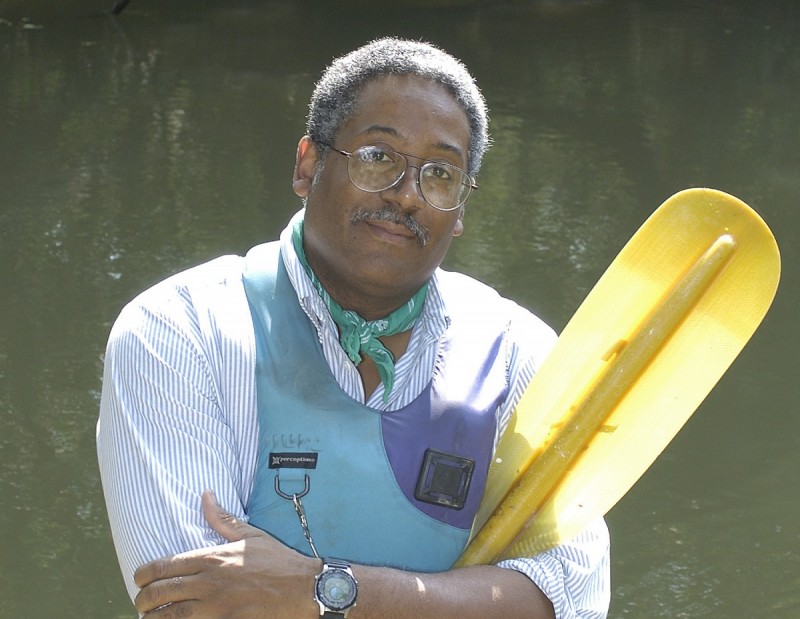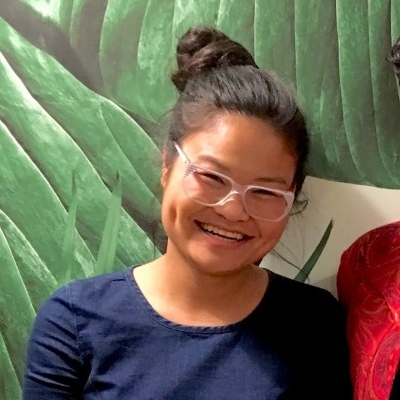A Changing Climate Means A Changing Society. The Island Press Urban Resilience Project, Supported By The Kresge Foundation And The JPB Foundation, Is Committed To A Greener, Fairer Future. This Article Was Originally Published April 23, 2019 On Greater Greater Washington as part of the Urbanist Journalism Fellowship.

Fred Tutman is the Patuxent Riverkeeper, one of a global network of 343 people who advocate for individual rivers. He’s also the nation’s only African-American Riverkeeper.
Locally, there’s a Potomac Riverkeeper and an Anacostia Riverkeeper; there are Riverkeepers (or, for non-rivers, other Waterkeepers) from Argentina to Vietnam.
Born and raised along the Patuxent in Maryland, as with seven generations before him, Tutman founded the Patuxent Riverkeeper organization in 2004. Having spent 27 years in media, television, and radio, along with a stint as a late-life law student, Tutman traded in his law books and reporting expertise to protect his home river.
I spoke with Tutman to learn more about his work and to get his perspective on the most pressing environmental and equity issues facing our regional rivers.
Can you tell our readers what a Riverkeeper is?
A Riverkeeper is an advocate who has a license. It’s a capital letter first of all. It’s a proper noun. We’re Advocates. We are expected to protect water quality and build a movement around the protection of water quality on the exclusive jurisdiction that we’re licensed for.
In my case, that’s the Patuxent River. It’s a geopolitically significant river in the state of Maryland. Citizens along the Patuxent were literally suing before the Clean Water Act was enacted. In fact, the origins of the Save the Bay movement are entirely from the impetus or the example set by Patuxent advocates.
Why did you became a Riverkeeper?
I worked in media television and radio for 27 years. I lived overseas and in Massachusetts for a while, but the Patuxent’s my home river. So as a citizen activist it never occurred to me you could make a career out of protecting a river until I learned about the Riverkeeper movement. That really brought onto my radar screen that you could be a gadfly or an irritant as a citizen activist and actually make a living doing that.
At the time [in 2002] I was in law school. I was the late life law student. I hadn’t decided what to do with a law degree actually and ultimately I didn’t finish. I actually stopped in the last year of law school, but along the way I learned about the Riverkeeper movement, and it just consumed me.
I was so excited by the idea that you could do this work: The work of working with communities and activating communities by doing really dissent-based work to try and make things better. That struck me as a much more attractive proposition than covering the news which was mostly bad news. Maybe I’ll make some good news, I thought.
Profiles and podcasts about you acknowledge, for better or worse, that you’re the only African-American Riverkeeper.
I believe that’s still true.
I know you’ve said that we shouldn’t increase diversity for diversity’s sake when it comes to environmental stewardship and that it’s an environmental equity issue. Can you elaborate for me what you mean?
I have never seen or experienced a black or brown community that was seeking “diversity.” The problem is that diversity is not really an expression of equity or equality. Once you wear the label of diversity, then there is a perception that you’re diverse and the expectation is that the presence of black or brown folks endorses the mission or the goals or the organization itself. But it doesn’t really provide a platform from where people of color can bring to the organizations’ attention issues that are vivid and particularly real in black communities and communities of color. So I think diversity is a trap.
Have you seen an increase in people of color who are environmental leaders, similar to you as a Riverkeeper?
They’ve always been there. I think they’re invisible to white folks [who run mainstream environmental groups]. They have to actually invest in these communities: invest their time and their presence in these communities to be credible and to pick up these burdens. If they think they’re going to clean up the environment with only white folks in charge, they’re nuts because, believe me, there’s a lot of ingenuity out there in all of these communities.
Continue reading "Meet Fred Tutman, the Patuxent Riverkeeper" here...


